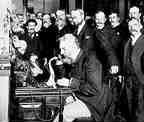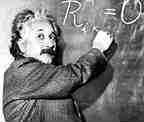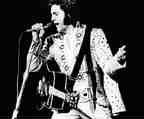|
A choice selection of not terribly good predictions David Olive
If timid, the forecaster sees nothing more than a reflection of today. But if he is bold, he risks being seduced by a mirage. Thus, safe predictions are best. Stephen Leacock, the humourist and McGill University economics professor, captured the spirit of the forecasting trade by having Mr. Yahi-Bahi of the Yahi-Bahi Oriental Society, a character in his 1914 novel, Arcadian Adventures of the Idle Rich, pronounce that "Many things are yet to happen before others begin." Here are some less successful predictions: - "There does not appear the slightest probability that, under any circumstances, Hong Kong will ever become a place of trade." -- Robert Montgomery Martin, British colonial treasurer, reporting home during a visit to Hong Kong in 1844. By the 1980s, Hong Kong led the world in per-capita ownership of Rolls-Royces. - "It is in vain to suppose that a free-trade system will be beneficial to a new and struggling colony which has nothing to export but raw materials." -- Abraham Gesner of Halifax, inventor of kerosene, in 1849. A few years later, a brief experiment in free trade with the U.S. boosted the economies of Britain's Canadian colonies; and trade between Canada and the U.S. has roughly doubled since the introduction of the Free Trade Agreement in 1989. - "This 'telephone' has too many shortcomings to be seriously considered as a means of communication. The device is inherently of no value to us." -- Western Union internal memo, 1876. - "When the Paris Exhibition closes, electric light will close with it and no more will be heard of it." -- Erasmus Wilson, Oxford University professor, in 1878. - "Heavier-than-air flying machines are impossible." -- Lord Kelvin, president of Britain's Royal Society, in 1895. He also believed "radio has no future" (1897) and "X-rays are a hoax" (1900). - "Everything that can be invented has been invented." -- Charles Duell, director of the U.S. Patent Office, in 1899. - "Ruth made a big mistake when he gave up pitching." -- Tris Speaker on fellow ballplayer Babe Ruth in 1921. - "Who the hell wants to hear actors talk?" -- Harry Warner of Warner Bros., resisting the novelty of "talkies," in 1927. - "Stock prices have reached what looks like a permanent high plateau." -- Irving Fisher, Yale University economist, in 1929, weeks before a $29-billion plunge in share values. - "By the year 1982 the graduated income tax will have practically abolished major differences in wealth." -- Irwin Edman, professor of philosophy at Columbia University, in 1932. - "The horse is here to stay, but the automobile is only a novelty, a fad." -- The president of the Michigan Savings Bank, advising Henry Ford's lawyer in the early 1900s against investing in Ford Motor Co. The lawyer ignored the advice. - "I think there is a world market for maybe five computers." -- Thomas Watson Sr., chairman of IBM Corp., in 1943. His successor, son Thomas Watson Jr., would bet the company on mainframe computers. - "You'd better learn secretarial work or else get married." -- Emmeline Snively, director of the Blue Book Modelling Agency, advising would-be model Marilyn Monroe in 1944. - "There is not the slightest indication that nuclear energy will ever be obtainable. That would mean that the atom would have to be shattered at will." -- Albert Einstein in 1932. - "Video won't be able to hold on to any market it captures after the first six months. People will soon get tired of staring at a plywood box every night." -- Film producer Darryl Zanuck, on the gloomy prospects for television, in 1946. - "It will be gone by June." -- Entertainment newspaper Variety, on rock 'n' roll, in 1955. - "Space travel is utter bilge." -- Richard van der Riet Woolley, upon assuming the post of British Astronomer Royal, in 1956. - "You ain't going nowhere, son -- you ought to go back to drivin' a truck." -- Jim Denny, manager of the Grand Ole Opry, on firing Elvis Presley after one performance, in 1954. - "Nearly all experts agree that bacterial and viral diseases will have been virtually wiped out [in the next few decades]. Probably arteriosclerotic heart disease will also have been eliminated." -- Time magazine in 1966. The AIDS epidemic began in the early 1980s. - "There is no reason anyone would want a computer in their home." -- Ken Olson, founder of Digital Equipment Corp., in 1977. In the 1990s, Mr. Olson was ousted from ailing DEC, once a dominant computer maker. Last year, DEC was absorbed into Compaq Computer Corp. - "This antitrust thing will blow over." -- Bill Gates, CEO of Microsoft Corp., in an internal memo a year or so before the U.S. Justice Department decided to subject Microsoft to one of the most ambitious antitrust actions in history.
|



